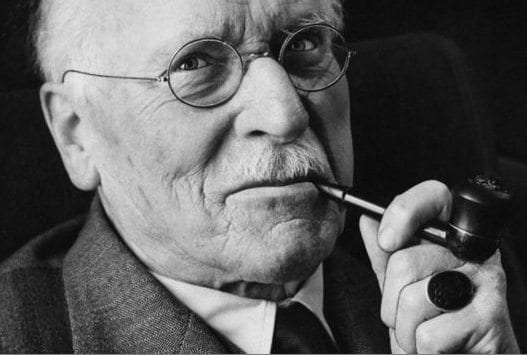
There is no doubt about it. Carl Jung Books are challenging to read, especially in the beginning because he’s talking about things most people have never thought about. And his books are even more difficult to read if you start out with the misconception that you already know what he’s saying.
When reading Jung’s books, your first challenge is to accept that you are reading something beyond on your immediate comprehension. Edward Edinger, (all of whose books I highly recommend) an extraordinarily brilliant man, said that reading Jung makes you feel very small.
So, if you are just beginning in your adventure into Carl Jung’s books, let me give you some advice on where to start and how to go about it. Thinking is not my superior function, it’s intuition, then feeling. I say that only to give hope to anyone who’s not a thinking type.
I’m only going to talk about a few books – what I would call the foundation books. That means leaving out his work on Alchemy for the time being. You can get there eventually, but really, get the fundamentals first. Otherwise, his ideas on Alchemy will not make any sense to you.
I’ll keep updating this post with more Jung Books as I get the time. I decided to get his out there for now because there’s more than enough to get you going.
Table of Contents - Jump To Section
Reading Carl Jung Books: Where do I start?
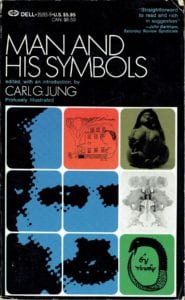 First, I am always happy when someone wants to get to know Jung’s actual work. He was a brilliant soul, with so much personality. Even in something as academic as his Collected Works, he comes through loud and clear. He also had a brilliant, tongue and cheek sense of humor, again something which comes through all of his writing.
First, I am always happy when someone wants to get to know Jung’s actual work. He was a brilliant soul, with so much personality. Even in something as academic as his Collected Works, he comes through loud and clear. He also had a brilliant, tongue and cheek sense of humor, again something which comes through all of his writing.
I would suggest that you begin with Man and His Symbols. It’s written entirely for the layperson – meaning someone not necessarily acquainted with his concepts, such as the unconscious, anima, animus, and Self or his ideas on the structure and dynamics of the human psyche.
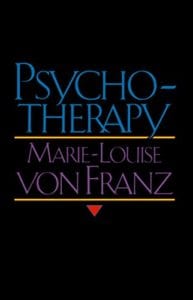 The book is a good introduction to Jung’s psychology. Jung wrote Part I, which is a really good presentation on his ideas on the unconscious and the role of dreams. The rest of the book was written by several of his closet and most-trusted colleagues, every chapter of which was edited by Jung himself, so you can trust what everyone says.
The book is a good introduction to Jung’s psychology. Jung wrote Part I, which is a really good presentation on his ideas on the unconscious and the role of dreams. The rest of the book was written by several of his closet and most-trusted colleagues, every chapter of which was edited by Jung himself, so you can trust what everyone says.
In particular I want to point out the two chapters written by Marie-Louise von Franz: chapter 3, The Process of Individuation and the Conclusion, Science and the Unconscious.
Von Franz’s writing style is different than Jung’s, and she clarifies his ideas in a different way. I found her work very helpful. I also think that her book, Psychotherapy would be a good guidebook to have on hand.
And finally, you can watch an awesome documentary called Matter of Heart. Its presentation is slow and deep. You’ll see some incredible interviews with both Jung himself and the first generation of analysts who worked directly with him. Everyone has such a rich and deep perspective on Jung’s work. It gives you an idea both of what one goes through and what one becomes when you dive into yourself in this way. I still re-watch it, even to this day.
Classic Introductory Carl Jung Books
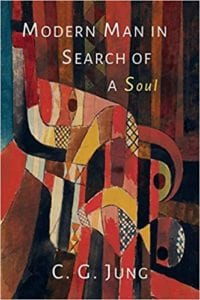 To know Jung, you have to read Carl Jung books. Anyone who suggests that you start with someone else’s work probably didn’t actually read Jung’s Books themselves, or, they’re just assuming that you’re not going to be able to do it. You can do it, but you have to do it in a certain way: methodically and very, very slowly. Carl Jung books aren’t something you’re going to leave by your bed for some light reading before you go to sleep.
To know Jung, you have to read Carl Jung books. Anyone who suggests that you start with someone else’s work probably didn’t actually read Jung’s Books themselves, or, they’re just assuming that you’re not going to be able to do it. You can do it, but you have to do it in a certain way: methodically and very, very slowly. Carl Jung books aren’t something you’re going to leave by your bed for some light reading before you go to sleep.
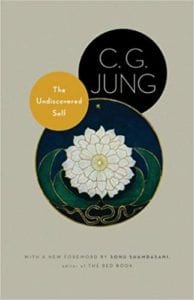 Modern Man in Search of the Soul and The Undiscovered Self are both compilations of some of Jung’s most approachable essays. You can get Modern Man in Search of the Soul in an audio format, which is very well-read. Even though I have read most of the essays 10 or more times, I still listen to those audio files. Every time I read or listen to Jung, I get what he’s saying in a whole new way.
Modern Man in Search of the Soul and The Undiscovered Self are both compilations of some of Jung’s most approachable essays. You can get Modern Man in Search of the Soul in an audio format, which is very well-read. Even though I have read most of the essays 10 or more times, I still listen to those audio files. Every time I read or listen to Jung, I get what he’s saying in a whole new way.
Are they really introductory? I’m not so sure about that. All of the essays in these books are scattered throughout the Collected Works, which is how I read them. I get the feeling that no matter what, you’re going to run into material that will confound you. But don’t worry about that. Sit with it until it comes through, or mark it with (?) and keep going. I had so many notes in the margins from my first year reading Jung. Notes that I made so that I could come back later and see if I understood.
It’s amazing to go back to those places of confusion and see how much sense it makes now versus then.
Jung’s Autobiography
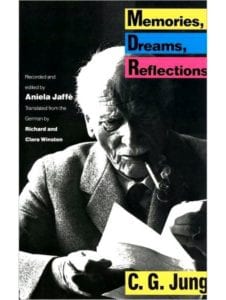 Memories, Dreams, and Reflections is also a famous first-read for many people. It wasn’t mine, so I can’t give you any first-hand experience on what it’s like to read it before you have read anything else. I can tell you that one of my clients, who after 2 years of analysis with me, recently read it as his intro to Jung’s books and loved it.
Memories, Dreams, and Reflections is also a famous first-read for many people. It wasn’t mine, so I can’t give you any first-hand experience on what it’s like to read it before you have read anything else. I can tell you that one of my clients, who after 2 years of analysis with me, recently read it as his intro to Jung’s books and loved it.
I’m trying to imagine what someone would think or feel as they read this book. One thing is certain, the depth and humanity of Jung’s soul comes through loud and clear. You just know this man comes from a place of experience, knowledge, and wisdom.
So, there’s a little bit of controversy around this book. In the first place, Jung didn’t actually write it; he dictated it to Aniela Jaffe, who edited it.
There’s also a lot of material that was edited out of the book, in particular, everything he said about Toni Wolff, his other partner. In the Psychological Club, where I have my praxis, there are copies of that material – all in German. I’ve been privy to hear some of it and it is very moving.
This book also comes in an audio format, which is again, very well-read – but the guy has an English accent. It’s lovely, don’t me wrong here, but Jung was Swiss! The Swiss have a distinct way of speaking, something you hear in all of Jung’s interviews. It’s hard for me to hear Jung’s words coming from an English guy, but hey, if audio books are your thing, give it a listen! As I said, he really reads it well.
Preparing Yourself for Jung’s Collected Works
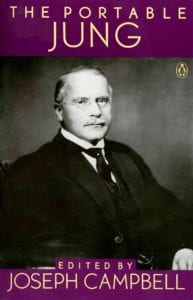 If you want to deep dive into the Collected Works – something everyone should do if they want to know Jung and form their own opinions – I’d say start with Joseph Campbell’s Portable Jung. Aside from Campbell’s brilliant introduction, this book is pure Jung. Remember that Joseph Campbell was a teacher. He pulled essays from Jung’s Collected Works and put them in this volume for one specific reason: to prepare you for reading Jung’s Collected Works.
If you want to deep dive into the Collected Works – something everyone should do if they want to know Jung and form their own opinions – I’d say start with Joseph Campbell’s Portable Jung. Aside from Campbell’s brilliant introduction, this book is pure Jung. Remember that Joseph Campbell was a teacher. He pulled essays from Jung’s Collected Works and put them in this volume for one specific reason: to prepare you for reading Jung’s Collected Works.
Campbell tells the reader that if the book is faithfully read from page one until the end, i.e., in order, that she will be prepared to embark upon the journey into Jung’s Collected Works. I did this myself, out of sheer desperation – or something like that. Having fallen into a deep pit of despair, which included a bit of a psychotic break – thank gods – I had no choice but to go to the source himself because I could tell that no one close to me was actually doing Jung’s analytical psychology.
I had a terrible Inner Critic who laughed at the thought of me trying to read C.G. Jung, but I had to try.
By that time, I had already read virtually everything that Joseph Campbell had written and I had received a lot of healing from his work. I knew how much Jung had influenced him. I did exactly what Campbell suggested, but it was not easy.
How to Read Jung Books: It’s slow going, so be prepared
Remember when you are reading the Portable Jung that we are talking about reading Jung’s essays from Jung’s Collected Works here, not Campbell’s interpretation of Jung Books. It’s not an easy read, but it really gives you what you need to start the Collected Works.
Put on your scholar’s cap. Be prepared to research, as though you’re reading something in a language you’ve never heard. If you consider yourself smarter than others, get over that before you even begin. If you have never encountered your down depths, you may have a more difficult time with this material.
Stay open and be receptive. Even if you haven’t touched your own depths, this stuff will crack you open if you let it.
I can honestly say as an intuitive-feeler, this read was no easy task for me. I would often have to read and re-read paragraphs several times over to make any sense of them. This I did every day for about 3 months straight, until finally I realized that there was a circular pattern to Jung’s writings.
Each time I returned a concept, its meaning and application became clearer and clearer to me and it started resonating very deeply. Not only did it begin to make sense intellectually, but it also made sense in terms of my lifelong experiences – experiences which I could see were direct encounters with the Unconscious.
Reading every day for 10-14 hours (I was in a severe psychological crisis), it took me from June until October 2007 to get through the Portable Jung, but I did it and Campbell was exactly right – I was indeed ready to start reading Jung’s volumes.
Some Confusion When Reading Jung Books
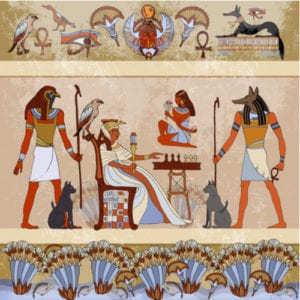 One thing that confuses a lot of people about Jung is his profound mythological and historical amplification of his theoretical material. You’ll be reading about his psychodynamic theory, then a dream or a vision, and then he starts going off about myths and such. Pages and pages of this mythological stuff – all of which is important for understanding the archetypal dimension of the psyche.
One thing that confuses a lot of people about Jung is his profound mythological and historical amplification of his theoretical material. You’ll be reading about his psychodynamic theory, then a dream or a vision, and then he starts going off about myths and such. Pages and pages of this mythological stuff – all of which is important for understanding the archetypal dimension of the psyche.
The problem is that he was so well-read that he loses people when he amplifies the material with mythology. This is the point at which people give up, either calling him nonsensical or feeling themselves too stupid to get it. Remember one thing: in the beginning, you are most likely too stupid to get it, but don’t let that stop you. Reading Jung makes you smarter if you go about it correctly.
For those who accuse Jung of not making sense: don’t project your lack of understanding onto Jung, like so many people do. Those people don’t understand him, so they say, “he makes no sense”. Jung makes perfect sense if you take the time to let what he says resonate. As Edinger said, Jung can make you feel small. If you don’t like that feeling, then stick to pop-psychology.
Some Tricks for Reading Jung’s Books
If you find yourself lost in all that amplification stuff, skip forward (sometimes several pages) until you find the place where he gets back to his point about psychological dynamics or to the place where you can understand him again.
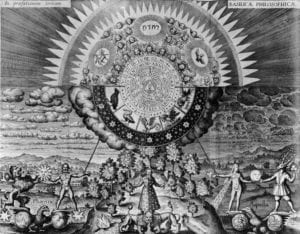
from the Emerald Tablet
Read that point first and then go back and read again. Better yet, actually do some research on the myths he’s talking about. He’s building a bridge for us. He’s using mythology to illustrate something about the psyche.
Learning as much as you can about mythology will help you understand the archetypal nature of your dreams. You can start see patterns that let you know when you are in an archetypal situation versus a personal problem.
And finally, if some stuff still doesn’t make sense, don’t worry about that now. Understanding will eventually come. Don’t get lost or caught up in that. Keep reading. Sometimes it might even take a few days to understand only one or two paragraphs. Stay with every sentence until it resonates. If it doesn’t make sense the first time you read it, keep reading the essay until you hit another sweet spot of understanding.
Once you have that, go back and re-read that part that didn’t make sense. Eventually, you’ll see that Jung comes back – again and again – to his ideas. You’ll see the pattern. Things will become clearer and clearer.
Also, start recording your dreams and make sure you engage them. You’ll start to experience synchronicity in your life that will blow your mind. There is something about diving into this work that opens doors for you. Sometimes you might get a dream visit from Jung himself. For me, he seems to show up anytime I am in turmoil over a decision.
A Suggested Order for Reading Carl Jung’s Collected Works
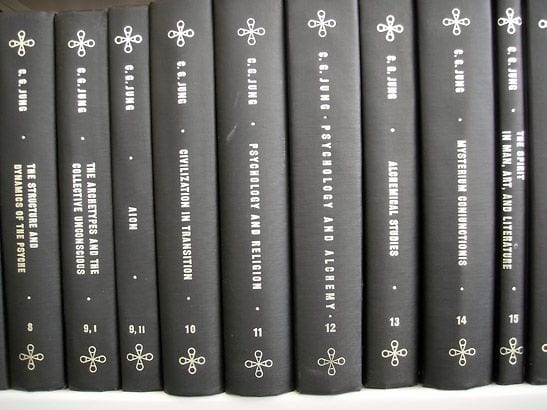
Carl Jung Books: Two Essays in Analytical Psychology, Volume 7 Collected Works
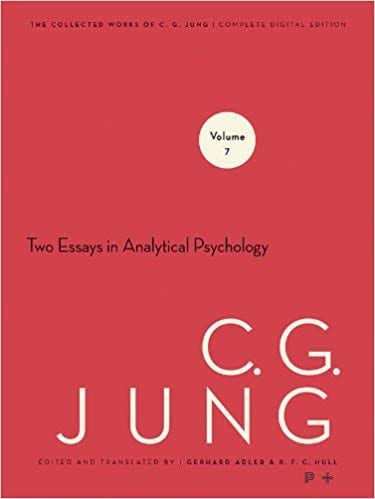 So, now you’re ready for some real Carl Jung Books: his famous Collected Works. I would suggest starting with Volume 7 of the Collected Works, Two Essays in Analytical Psychology because it’s really not that difficult to read – at least not as difficult as some of the other books.
So, now you’re ready for some real Carl Jung Books: his famous Collected Works. I would suggest starting with Volume 7 of the Collected Works, Two Essays in Analytical Psychology because it’s really not that difficult to read – at least not as difficult as some of the other books.
I love this book, most especially Section II, THE RELATIONS BETWEEN THE EGO AND THE UNCONSCIOUS because that’s where Jung really describes the inner dynamics of the human mind and how we can work with everything that comes up from the unconscious.
The first part of this Carl Jung book breaks down the differences between his approach to psychology and that of Freud and Adler. I have to admit, that first part was not so interesting to me. I would even go so far as to say that you don’t have to read those two chapters if they aren’t grabbing you, especially if you already have knowledge of Freud’s and Adler’s psychologies. You can go straight to “The Problem of Attitude-Type” and start there.
Jung has an entire section dedicated to Individuation, describing in detail how we can extricate ourselves from identification with the various archetypal elements of the psyche. The section, “Techniques of Differentiation Between the Ego and the Figures of the Unconscious” is one of the only places he gives us an actual technique. As someone who did self-analysis for 6 years, I found that section extraordinarily helpful in dealing destructive mindsets and their representation in dreams.
Carl Jung Books: Structure and Dynamics of the Psyche, Volume 8 Collected Works
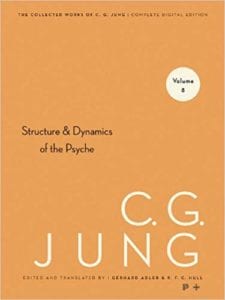 Another gem in the list of Carl Jung Books to read. The Structure and Dynamics of the Psyche is important for understanding Jung’s map of the psyche. Jung was a medical doctor very interested in biology, who in the end chose psychiatry as his specialty, and then later developed his Analytical Psychology.
Another gem in the list of Carl Jung Books to read. The Structure and Dynamics of the Psyche is important for understanding Jung’s map of the psyche. Jung was a medical doctor very interested in biology, who in the end chose psychiatry as his specialty, and then later developed his Analytical Psychology.
Here is a quote from a Quora answer I gave about the value of reading The Structure and Dynamics of the Psyche:
For Jung, the structure of the human psyche is like the anatomy of the human body. It has various layers and discernible parts, each with its own function. Consciousness, personal unconscious, collective unconscious, and psychoid are its layers. The discernible psychic parts, Jung called archetypes. The archetypes are general patterns of human perception and behavior.
The dynamic aspect of the psyche is like the physiology of the body. The psychic organs – the archetypes – dynamically work together in a specifically human way. Similar to the body, when something is out of balance in the psyche, you can see that imbalance expressed in signs and symptoms.
And just like our anatomy and physiology expresses itself uniquely in each person, so too does the psyche. When you understand how the general system works, you can understand yourself better.
This was important to Jung, because for him, only when you understand what is common to all of us, can you extract what is distinctively you. Our individual personality is the unique expression of those universal conditions.
The dynamics of the psyche, psychic processes, are what underlies all of our experiences.
In the section On Psychic Energy, you can see how he developed his theory of psychodynamics based on principles of measurable energy and how to apply it to the psychological concept of energy. This will help you understand what he means when he uses terms such as libido, regression, potential, introversion and extraversion. If you get a feel for the movement of psychic energy, then you can better understand the direction psyche wants to go, or where it is going, when it manifests in your dreams. Some typical dream examples of psychic movement are falling, descension and ascension, backwards and forwards, etc.
Section IV has two fantastic essays about working with dreams, General Aspects of Dream Psychology and The Nature of Dreams. In these two
Carl Jung Books: Archetypes and the Collective Unconscious, Volume 9i Collected Works
Carl Jung Books: Lesser Known Books
Seminar on Dream Analysis C.G. Jung and Visions : Notes of the seminar given in 1930-1934. In both seminars, Jung speaks more openly and freely than he does in his academic essays because the people he’s talking to are his allies and/or original students. The participants are already working with his psychology, either with clients/patients or on themselves.
These books are transcripts from the seminar. They are conversational in tone, though we still get all of Jung’s knowledge and amplification. People ask questions and he answers them. He asks people questions, such as “what does this symbol mean in this context?”
If you have a good imagination, which I do, it’s like you are there. I always close the books and pause whenever he asks questions. Do I know the answer? Will you know the answer? Maybe I’m geeking, but I just love it.
I would suggest starting with the Dream Analysis seminars. Jung takes you through the analytical process of an actual patient (a man), of course, using dream analysis. The Visions book is the analytical process of a woman. And as with the other one, you go through the process of her analysis, using dreams and visions.
In both of these books, you not only get to see how Jung put his analytical psychology into practice (something lacking in the Collected Works), but also get some exquisite symbol amplification. He also asks the participants questions, “what do you think this means?” or “why would he dream of this symbol now?” It’s like you’re there.
I have read his Collected Works many times and I love them. However, these lesser known books are by far my favorites in terms of being with C.G. Jung, the person.

thanks for sharing the information
Hey, I’ve been treading down this path of reading material that has taken me from literary classics to more challenging reads, most dealing with abstract topics. This endeavor has inevitably led me to Jung.
I’ll be honest, when I started reading Modern Man in Search of a Soul, I was quite discouraged by the material; as you have said in the above essay, a mere sentence was packed with all sorts of underlying ideas and implications (some of it understandable—albeit hard to digest in one read—some of it impenetrable). I began to question if the content was too far above me to read. Now, after some encouragement from your essay, I feel much better, knowing that it’s normal for me to not understand it all, knowing that it’s all part of the process.
Thanks for this!
Hi Neil, that’s great to hear. Definitely stick with it.
Jesamine,
Thanks for leading me to this article! Fittingly, I already own some of the books at the top of the list. They are partially explored so time to dig in some more. The Undiscovered Self was the collection of essays that initially pulled me in- following initial inspiration from Jordan Peterson, who draws many ideas from Jung.
Thanks, Sean
My pleasure. I am happy that you followed Jordan Peterson’s lead on that. He’s is someone who really gets Jung. Yes, dig in and explore more. Soon, I will be offering Zoom seminars, so hope to see you in one of those.
Thank you so much for your suggestions. I needed a list like that to see if I can ever finish any of Jung’s books. Please, let me know when you’ll be offering those Zoom seminars.
Hi there, sorry I missed this comment when you posted. Bluehost failed to send me a notification. You can certainly finish Jung! Just be prepared to take it slowly. That is the key. Check back regularly for notification for Zoom seminars. You can sign up for email notifications as well. I won’t be able to send out individual emails.
I found a comment of your’s on Quora and came and found you here. As a fellow intuitive, I was happy to see someone speak so clearly and relatably about such dense and Thinking-oriented material. It seems we are kindred spirits in some ways and I hope to stay connected about what you are up to. I will sign up for your email list as well ✨
Many thanks for your comment Aiden. Yes, I think we are kindred. It’s good see someone else out there doing the work. 🙏
It looks like I picked the right books to start with Jung. I will not check on Campbell. You are my Campbell. Lol! Before I get acquainted with your site, I was starting with “Man and His Symbols.” However, there was a sense of urgency to my nightly dreams that I decided I needed a crash course. Something that will help me figure them out the Jungian way. I read a large part of your posts already and so I feel I am now ready to dive to Jung’s works. I picked Man and His Symbols thru intuition and am glad that it is actually in your first-read recom. Thank you. I will surely write an article about your site just so to help anyone who is interested find the guidance I found here. Again, my gratitude. P. S. An ancient tree similar to what I had seen in Siem Reap, Cambodia keeps popping up in my nightly dreams, 3 nights in a row. The focus is always the roots and the trunks up to where the branches start to grow. I never noticed the leaves as far as I can recall. Just the gray body of the big, sturdy tree, the strong roots, and fat branches. That is why I think I need to delve further.
very good to hear! The tree is a common symbol for the unfolding of the true personality … sounds like the unconscious supports the work you are doing.
I came back to say you are right about “Man and His Symbols.” It is a fascinating gem. Really, thank you for putting up this site. May Life bless you in thousand and one ways. My dreamscape is greatly improved now. I cannot believe that you and Jung were actually right about it. (Sorry 🙏 I maintain a healthy objectivity and do test the theory before I swallow it. I tested the new age theory on LOA too in relation to dream. Hence, when I read you stating we cannot summon the inner people, I believed you.) Indeed, it is a form of communication – a two way communication at that!
Never apologize for not swallowing something without reflection. Too much of that already in this world. btw, Jung was right – not me. I’m grateful that he was courageous enough to take the leap and then share the adventure.
Where is the famous red book u have not mentioned it?
I’m curious which of his books have a notable reliance on symbolism (i.e. images in the text) and thus warrant having a textual copy instead of an audible copy. I imagine his book on Alchemy is one such example. Help?
That is not an easy question to answer. It depends on what you want from the images. There isn’t just one book on alchemy. All four of his works on alchemy (three volumes in the Collected Works (12, 13, 14) and another long essay in Volume 16) have a lot of images, but alchemical images can be obscure. Also, these days you can get any of those images from the web. Personally, I think Volume 5, Symbols of Transformation would be the way to go if you want to dig deep into the nature of symbolism and get a lot of images. It is a phenomenal read, filled with images.
I would suggest not getting the original version, The Psychology of the Unconscious. Jung himself said that original work was a sort of stream of consciousness, something he did as an immediate retort to Freud and just before his confrontation with the unconscious. He really fleshed out, elaborated, corrected, and clarified this material in the 37 years that passed between this version and the final version. I’m not even sure this one had images.